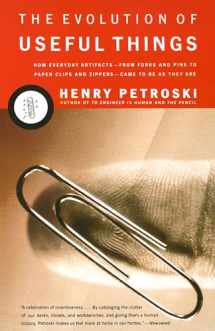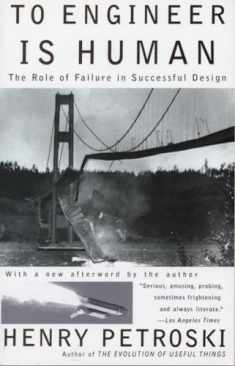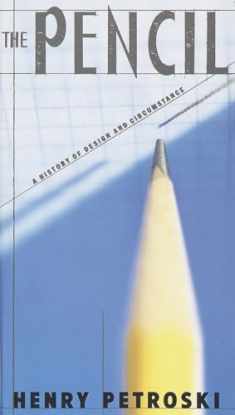
The Evolution of Useful Things: How Everyday Artifacts-From Forks and Pins to Paper Clips and Zippers-Came to be as They are
Book details
Summary
Description
How did the table fork acquire a fourth tine? What advantage does the Phillips-head screw have over its single-grooved predecessor? Why does the paper clip look the way it does? What makes Scotch tape Scotch?
In this delightful book Henry, Petroski takes a microscopic look at artifacts that most of us count on but rarely contemplate, including such icons of the everyday as pins, Post-its, and fast-food "clamshell" containers. At the same time, he offers a convincing new theory of technological innovation as a response to the perceived failures of existing products—suggesting that irritation, and not necessity, is the mother of invention.


We would LOVE it if you could help us and other readers by reviewing the book
Book review





